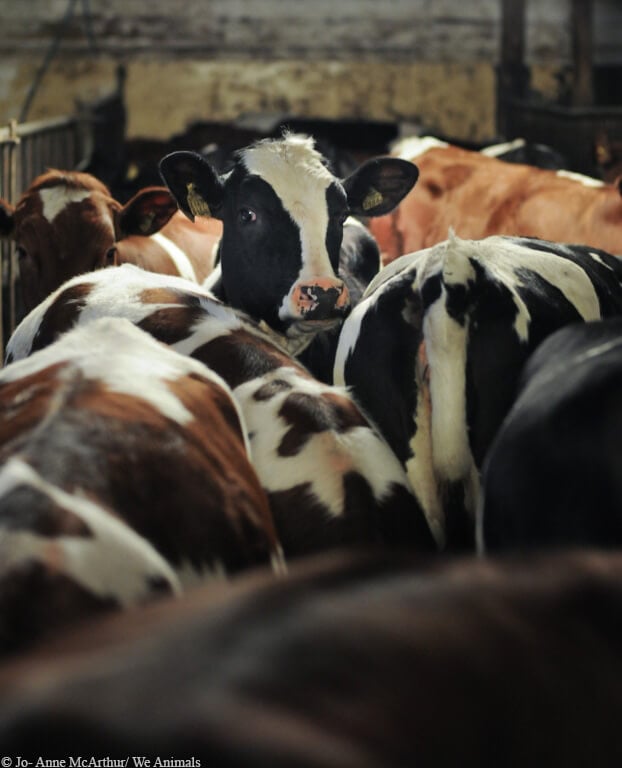What is influenza D, and why is it everywhere? We’ve already covered how people who murder animals for their flesh are breeding infectious diseases, and a recently released NPR piece provides a new perspective on the matter.
The article covers a small study conducted from 2019 to 2020 that found that influenza D, a bovine flu that has infected 50% of cows across the U.S., had jumped to 90% of the workers on five dairy farms. A 2016 study of farms that raise cows for meat or dairy found that 18% of the nearby population who didn’t work on them had influenza D antibodies. This means the study participants had been infected with the virus.
You may be surprised that you’ve never heard of something that’s infected so many people. To date, the influenza D virus has had a minimal impact on human health. But that may change in the coming days, weeks, or months. How do we stop influenza D and other viruses from starting the next pandemic?
Pandemics Start With Animal Suffering
As we’ve continued to grapple with the deadly, globally detrimental COVID-19 pandemic, we’ve had to make many changes in our daily lives. We’re cautious about indoor gatherings, we socially distance, and we wear a mask when we’re ill.
One thing that hasn’t changed may be the most dangerous: animal farms, the ground zero for future disease outbreaks. Although more and more farms are using terms like “grass-fed” or “organic” in an attempt to persuade consumers that they’re small, safe operations through techniques known as “greenwashing” and “humane-washing,” there’s simply no way to exploit animals at scale without circulating disease. COVID-19 is just the latest in a series of zoonotic epidemics and pandemics that have plagued humans, and it certainly won’t be the last, given how the food industry treats animals.
Prevention Is the Best Medicine
The cramped, desolate lots where farmers imprison most animals exploited for food are accelerated breeding grounds for super-illnesses. The only reasonable course of action we can take to slow the rapid mutation of diseases like influenza D is to stop farming animals. If you work in the animal-farming industry, stop! There are better ways to make a living. And preventing the next pandemic means going vegan, protesting against animal agriculture, and engaging in other forms of activism to help shut down the meat, egg, and dairy industries.
 © Jo- Anne McArthur/ We Animals
© Jo- Anne McArthur/ We AnimalsJustice for Animals Means a Safer Planet
Living vegan is the most powerful way you can help animals exploited on farms. By going vegan, you’ll save nearly 200 animals per year, sending a powerful message to the food industry that you don’t support dangerous and cruel animal exploitation.
PETA’s free vegan starter kit can help you make the switch. It’s packed with recipes, tips, and encouragement. As individual consumers, it’s up to us to create a more just and sustainable food system for humans and our fellow animals. Do your part to help prevent the next pandemic before it’s too late:
The post Influenza D Is Everywhere—Will You Go Vegan Before It’s Too Late? appeared first on PETA.
